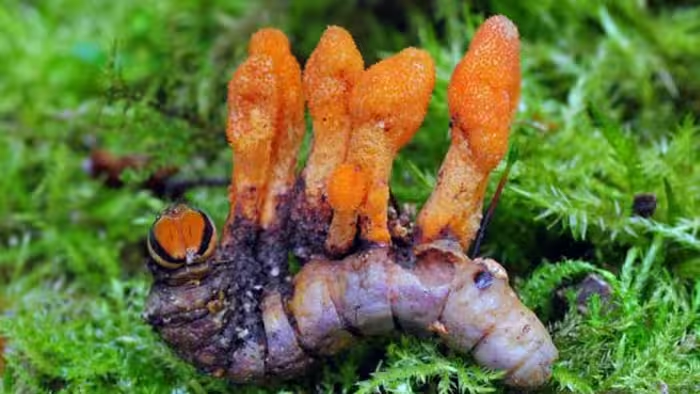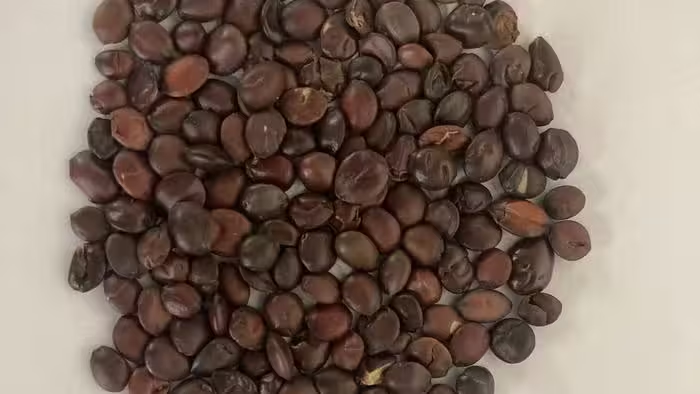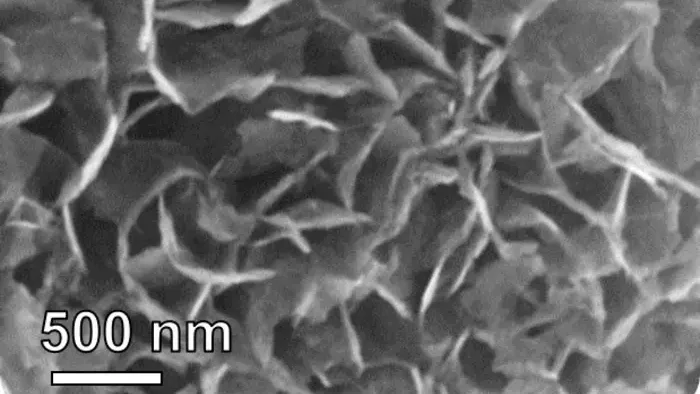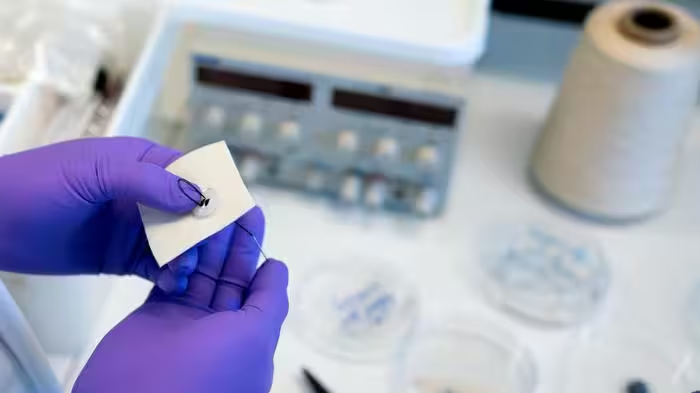Scientists at UCLA in the USA extended fruit flies’ healthy lifespan by 30% by preventing F-actin protein buildup and enhancing cellular recycling in the brain.
From University of California – Los Angeles 14/11/24 (first released 28/10/24)

Key takeaways
- Buildup of a protein called filamentous actin, or F-actin, in the brain inhibits the removal of cellular wastes, including DNA, lipids, proteins and organelles.
- The resulting accumulation of waste diminishes neuronal functions and contributes to cognitive decline.
- By tweaking a few very specific genes in the neurons of aging fruit flies, the researchers prevented F-actin buildup, maintained cellular recycling and extended the healthy lifespan of fruit flies by approximately 30%.
Humans aren’t the only ones who grow forgetful as they age — fruit flies do, too.
But because fruit flies have a lifespan of only about two months, they can be a useful model for understanding the cognitive decline that comes with aging.
A new study published in Nature Communications shows that when a common cell structural protein called filamentous actin, or F-actin, builds up in the brain, it inhibits a key process that removes unnecessary or dysfunctional components within cells, including DNA, lipids, proteins and organelles.
The resulting accumulation of waste diminishes neuronal functions and contributes to cognitive decline.
By tweaking a few specific genes in aging fruit flies’ neurons, the researchers prevented F-actin buildup, maintained cellular recycling and extended the healthy lifespan of fruit flies by approximately 30%.
Actin, a family of proteins that help give cells their shape, are abundant throughout the body.
F-actin forms filaments that are essential for maintaining cell structure and many other functions.
The researchers, led by former postdoctoral scholar Edward (Ted) Schmid in David Walker’s lab, noticed F-actin buildup in the brains of aging fruit flies and wondered if it contributed to brain aging and overall loss of organismal health.
Their first clue of a correlation: Flies on a restricted diet both lived longer and had less F-actin buildup in their brains.
Their second clue: When treated with a drug known to extend lifespan, called rapamycin, there was also less F-actin in the brains of aged flies.
“But that’s correlation, not a direct demonstration that F-actin is detrimental to aging of the brain,” said Walker, senior author and UCLA professor of integrative biology and physiology.
“To get at causality, we turned to genetics.”
Because the fruit fly genome is thoroughly mapped and understood, the group was able to target in aging fruit flies genes that are known to play important roles in the accumulation of actin filaments.
That included a gene called Fhos, a member of a family of proteins known to elongate and organize actin filaments.
“When we reduced Fhos expression in aging neurons, it prevented the accumulation of F-actin in the brain,” said Schmid, now an investigator at the Arkansas Biosciences Institute and assistant professor at Arkansas State University.
“This really allowed us to expand our study because now, we had a direct way to target F-actin accumulation in the brain and study how it affects the aging process.”
Even though the genetic intervention was targeted to just neurons, it improved the flies’ overall health.
They lived 25-30% longer, while showing signs of improved brain function as well as markers of improved health in other organ systems.
Preventing F-actin accumulation protected cognitive function, which shows the buildup is driving age-onset cognitive decline.
“Flies get more forgetful as they age, and their ability to learn and remember declines in middle age, just like it does in people,” Walker said.
“If we prevent accumulation of F-actin, it helps the flies learn and remember when older — which tells us the buildup is not benign.”
Further investigation showed the F-actin was interfering with the body’s “cellular garbage disposal system.”
Damaged or superfluous proteins and other components inside a cell are broken down in a process called “autophagy.”
Aging research has established that autophagy pathways become less active with age, but no one knew exactly why.
The new study shows that preventing F-actin accumulation led to much more active autophagy in the brains of aged fruit flies.
The authors found that if they removed F-actin but also disabled autophagy, it did not slow aging: The primary mechanism by which F-actin drives brain aging appears to be by impairing autophagy.
The researchers also showed that disrupting F-actin in aged brains can restore brain autophagy to youthful levels and reverse certain cellular makers of brain aging.
These findings may be good news for the elderly fruit flies with reduced F-actin in their brains.
But it has not yet been demonstrated in humans, and developing interventions to prevent F-actin accumulation might prove more challenging.
Still, the discovery directs researchers in a fruitful new direction for healthier aging in people.
“Most of us in the aging field are focused on moving beyond lifespan into what we call the healthspan,” said Walker.
“We want to help people enjoy good health and a high quality of life while extending the lifespan.”
“Our study improved cognitive and gut function, activity level, and overall healthspan of fruit flies — and offers hope for what we might be able to achieve in humans.”
The research was funded by the National Institutes of Health’s National Institute on Aging.
More info
You may also be curious about:
-

Other body parts form memories, not just the brain
-

Research shows caterpillar fungus can slow down growth of cancer cells
-

It’s not to be. Universe too short for Shakespeare typing monkeys
-

Chinese herbal medicine’s potential in preventing dementia
-

Detecting evidence of lung cancer in exhaled breath
-

How fresh is your milk? Your smartphone can tell.
-

The silk thread that can turn clothes into charging stations
-

Tiny gold nanorods fry bacteria on medical implants
-

Static electricity could help run air conditioners
-

Giant rats could soon sniff out illegal elephant tusk and rhino horn
-

Solar-powered animal-plant hybrid cells
-

Capturing carbon from the air just got easier
